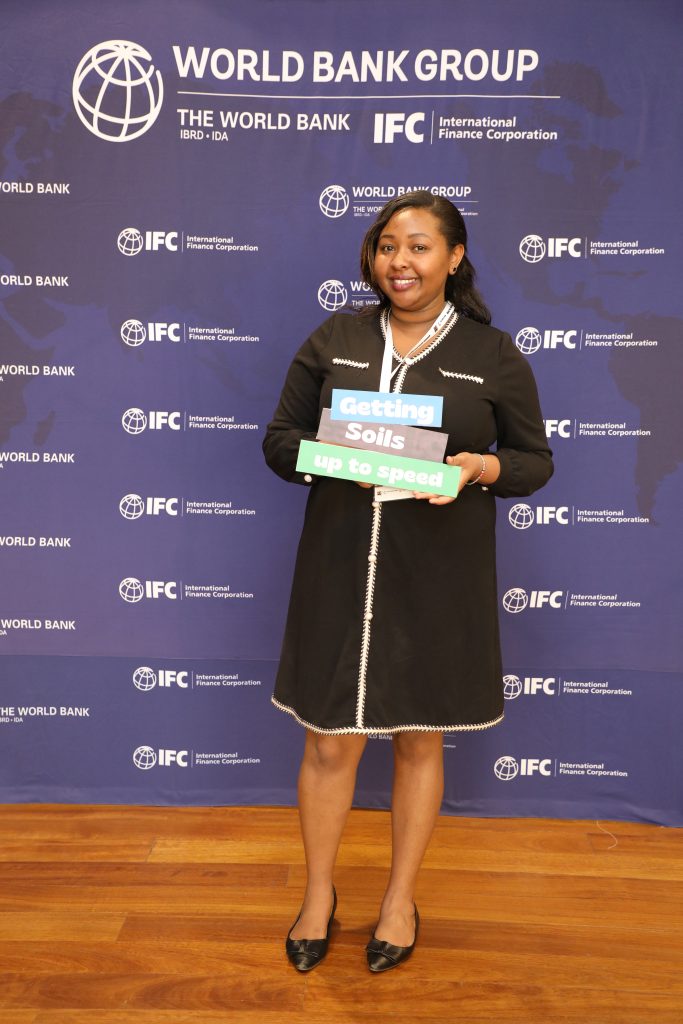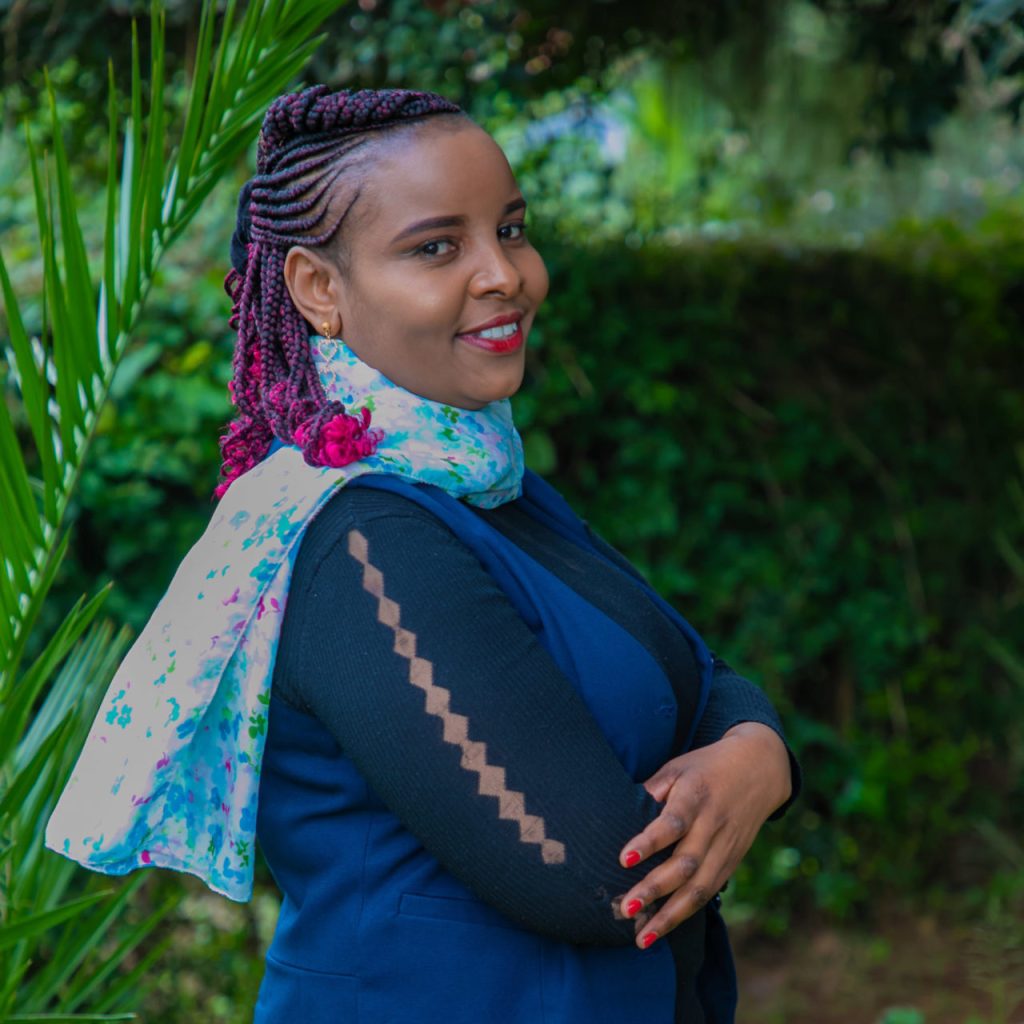At first glance, the numbers tell a familiar story: women make up nearly 66% of Africa’s agricultural workforce, yet only one in seven AgTech deals go to women-led founding teams and those that do often receive far less funding than their male counterparts. It is a gap that runs deeper than capital; it is about opportunity, access, and visibility.
These questions came into sharp focus during our 9th AgriFin Annual Learning Event, themed “Data-Driven Innovations and Investments: Harnessing Intelligence to Build Sustainable, Investable Agri-Food Systems.” Through insights from AgBase, our real-time data and intelligence platform, we took a moment to reflect: Where do we stand when it comes to gender and investment in AgTech? Are women-led startups finally gaining ground, or does the data still tell a different story?
At Mercy Corps AgriFin, we have seen that when women are empowered with the right tools, partnerships, and digital solutions, they do not just participate they lead transformation. One example is DigiCow Africa Limited, founded by Peninah Wanja, which we are proud to have supported, and we are still working with. DigiCow is changing how dairy farmers, especially women, access information, record data, and improve their productivity through digital tools built around their everyday realities.
She is joined by innovators such as Priscilla Wakarera, Founder and CEO of Rhea, who is taking on challenges like soil health, making testing faster, more affordable, and more accessible for smallholder farmers across Kenya and beyond.
This article explores their journeys, the hurdles they have faced, what it really takes for women to thrive in AgTech, and whether the funding landscape is finally starting to shift in their favor.

Caption : Priscillah Wakarera, Founder of Rhea Soil
Breaking Ground: Priscilla’s Mission to Heal the Soil
In the bustling heart of Nairobi, a quiet revolution is taking root literally. Priscilla Wakarera, a trained soil scientist, is tackling one of African agriculture’s most overlooked challenges: declining soil fertility and the slow, costly process of soil testing.
“For decades, poor soil health has quietly eroded farmers’ productivity,” she says. “But many farmers have never tested their soil and those who tried found it expensive and painfully slow.”
She recalls one turning point vividly:
“We collected over 100 soil samples expecting results in two weeks. It took three months. Farmers found it so tedious they didn’t want to do it again. That’s when I knew there had to be a better way.”
That realization inspired Rhea , a soil health management company that blends IoT technology, ML data, and local knowledge to make soil testing fast, affordable, and farmer friendly. Using internally developed IoT sensor devices, Rhea cuts the analysis time from two weeks to just 15 minutes, delivering instant results and recommendations directly to farmers in the field.
These portable devices are designed for accessibility: local agronomists and field agents, even with minimal technical training, can operate them in rural villages. Farmers receive tailored results without waiting for lab reports or paying additional agronomist fees.
Today, Rhea Health operates across 12 Kenyan counties, with 150 agronomist agents supporting over 10,000 farmers and testing soils across nearly 5,000 acres. The company has also piloted regionally reaching 1,000 farmers in Tanzania and 140 in Rwanda, proving that scalable soil diagnostics can work across diverse ecosystems.
AI Meets Agriculture: A Chatbot in Every Farmer’s Pocket
Priscilla’s innovation did not stop at hardware. Recognizing that farmers need continuous, accessible guidance, she built an AI-powered WhatsApp chatbot, a virtual agronomist that speaks the farmer’s language.
“On the chatbot, we’ve specifically tailored our own large language model trained on data about good agricultural practices across East Africa,” she explains. “It covers value chains such as coffee, avocado, maize, and beans and it’s freely accessible. Farmers can just send a simple ‘hi’ to get started.”
The chatbot supports English, Swahili, 15 local languages, and even French and Spanish. Farmers can upload photos of their crops, and through computer vision and machine learning, the bot diagnoses nutrient deficiencies, pests, or diseases and provides real-time advice.
“We’ve even optimized it to work on basic Android phones,” Priscilla remarks. “You don’t need an expensive camera. A simple 3,000-shilling phone works just fine.”

Caption : Peninah Wanja, Founder of Digicow
From Two Cups of Milk to a Digital Revolution
While Priscilla focuses on what happens below the ground, Peninah Wanja’s journey began in the cowshed inspired by her mother’s struggle to produce enough milk for their family.
“Growing up in a small village, I watched my mother care for our only cow,” she recalls. “Despite all her effort, the cow produced only two cups of milk a day. That experience stayed with me.”
Years later, as an agricultural extension officer, Peninah saw that her mother’s struggle wasn’t unique; it was systemic.
“When you look at the statistics, one extension officer serves close to 4,000 farmers. That means most farmers are left to figure things out on their own,” she says.
This realization led her to create DigiCow Africa Limited, a company dedicated to digitizing dairy farming and closing the information gap for smallholders.
Building DigiCow: A Data-Driven Lifeline for Dairy Farmers
The DigiCow app helps farmers record, analyze, and manage livestock data from breeding cycles to milk production while offering access to qualified veterinarians, artificial insemination providers, and feed suppliers.
To tackle barriers such as illiteracy and low digital access, DigiCow introduced voice-based advisory services and the Ndume App, which enables animal health practitioners to record data on behalf of farmers. These records automatically sync with farmers’ profiles, generating timely alerts for calving, pregnancy confirmation, and disease management.
Her solution has grown significantly, with DigiCow now reaching over 700,000 farmers, 80% of whom are dairy farmers. The platform connects dairy farmers across Kenya and collaborates with more than 600 youth extension officers and 1,800 animal health practitioners.
However, the journey has not been easy. “We faced low network connectivity, limited funds, and resistance to record keeping,” she admits. “Some farmers thought technology was too complicated. We had to show them the value, one village at a time.”
Her persistence paid off. DigiCow has earned multiple awards, including Best AgriTech Company (Digital 100 Awards 2023), Most Innovative AgTech (Agricultural 100 Awards 2022), and the AYuTe Africa Challenge (Heifer International), which provided (USD 200,000) in grant funding and mentorship.
“With this support from Heifer International,” she says, “we can now reach even more small-scale farmers across the continent.”
Breaking Bias, Building Value
Both Priscilla and Peninah have faced the harsh realities of gender bias in a male-dominated sector.
“Fundraising is hard,” Priscilla says candidly. “It’s even harder for women in AgriTech. Investors often question our risk appetite or resilience, questions our male counterparts rarely face.”
For Peninah, skepticism came from both the boardroom and the field. “People didn’t think a woman could build a tech company that works with vets and farmers,” she says. “But I knew if I built something that truly solved farmers’ problems, the results would speak louder than the bias.”
Sustainability by Design
Both Rhea and DigiCow have built financially sustainable, inclusive business models. Rhea empowers local agronomists and agro-dealers as well as many women to earn commissions from each soil test, creating jobs and ensuring farmers get trusted advice. DigiCow generates revenue through partnerships with cooperatives, vet associations, and subscription services.
The Bigger Picture: Climate, Community, and Capacity
For both women, technology is not an end it is a means to resilience.
“Healthy soils store carbon, retain water, and reduce waste,” says Priscilla. “But very few people focus on long-term soil management. If we invested half as much in soil health as we do in fertilizer subsidies, we’d see real transformation.”
Similarly, Peninah believes technology can redefine rural livelihoods:
“It’s been so exciting to see 60,000 farmers, many of the women become more profitable and productive using DigiCow,” she says. “When farmers earn better, entire communities change.”
Both call for policy and ecosystem support that centers local innovators, especially women. “We need financing without collateral, more tech hubs, and a rethinking of how young people engage in agriculture,” says Peninah.
Looking Ahead: Growth Rooted in Purpose
Over the next two years, Rhea Health plans to expand to 33 counties in Kenya and strengthen its presence in Tanzania and Rwanda, scaling to 500 field agents by Q2 2026. DigiCow, meanwhile, is targeting over 500,000 digitized farmers by the end of 2025, continuing its expansion across East Africa.
Their journeys reflect not only innovation but resilience building through funding gaps, gender bias, and infrastructure challenges to deliver real impact on the ground.
Conclusion:
How Resilience and Empathy Shaped Rhea and Digicow’s journey in Technology-Driven Farming
From Priscilla’s three-month soil lab delays to Peninah’s two cups of milk, these women turned personal frustration into innovation. Their stories remind us that Africa’s agricultural transformation will not be led by technology alone but by people who understand the problems deeply, and build solutions with farmers, not just for them.
Together, they represent how far women in AgriTech have come and how much farther they can take the continent when innovation is grounded in empathy, inclusivity, and the pursuit of value.“Build through the noise,” Priscilla advises. “Don’t chase visibility, chase value” while Peninah adds, “If your business stays alive, your vision will too.” “At the end of the day, your business has to stand on its own,” says Priscilla. “If you build something valuable that customers love, no one can argue with that.
Mercy Corps AgriFin’s Role in Supporting Entrepreneurs
Mercy Corps AgriFin has worked AgTech entrepreneurs to develop gender-intentional approaches that combine financial inclusion tools, mentorship, and capacity-building support reaching over 8.5 million women smallholder farmers. AgriFin has developed a Gender Transformative Toolkit, a compendium of 17 hands-on tools that help organizations make digital technology work for women in agriculture. By supporting women entrepreneurs, Mercy Corps AgriFin ensures that innovative solutions are not only scalable but also inclusive, empowering women farmers across Africa and beyond.
Watch this video on Mercy Corps Agrifin’s engagement with Digicow .
